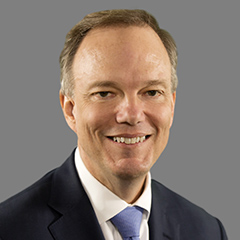On Friday, November 22, I moderated a policy roundtable, “It’s the Evidence, Stupid: GAO’s Report on Evidence-Based Policymaking and What Comes Next,” at APPAM’s 2024 conference in National Harbor, MD. This discussion brought together a panel of cross-industry experts to discuss the implications and progress of the Foundations for Evidence-Based Policymaking Act of 2018 (Evidence Act), focusing on the challenges and successes in building evidence-based policymaking capacity within federal agencies.
The Evidence Act: A Brief Overview
The Evidence Act aims to advance evidence-building in the federal government. It mandates that federal agencies enhance their capacity for evidence-building through the establishment of data councils, evidence officers, and interagency councils. This structure is intended to foster a culture of evidence-based decision-making across the government. Ultimately, we're trying to get policymakers and administrators to make decisions that are based on evidence. We don't want to turn them into researchers. We want to give them the tools to make decisions as if they had been researchers.
Key Challenges in Implementation
Erika Rissi, Chief Evaluation Officer and Section Head of the Evaluation and Assessment Capability Section, National Science Foundation, highlighted the practical hurdles agencies face, such as integrating new activities into existing workflows and convincing leadership to allocate resources for evidence-building. She emphasized that while the Evidence Act introduces new concepts like learning agendas, the real challenge lies in the mundane aspects of implementation, such as making space for these activities within tight budgets and schedules.
Nick Hart, President and CEO, Data Foundation, pointed out the delicate balance between flexibility and guidance. He noted that while agencies often seek more guidance on implementation, overly prescriptive instructions can stifle innovation and adaptability. The goal is to provide enough direction to ensure consistency without hindering the unique needs and contexts of different agencies.
Building a Culture of Evidence
Melinda J.B. Buntin, Bloomberg Distinguished Professor, Johns Hopkins Bloomberg School of Public Health and Carey Business School, stressed the importance of culture in successful evidence-building. Drawing from her experience at the Department of Health and Human Services, she noted that having the right structures in place is crucial, but fostering a culture that values and utilizes evidence is equally important. This involves ensuring that evidence teams are integrated into the strategic and policy-making processes of their agencies.
Success Stories and Future Directions
While the panel acknowledged that it might be too soon to see widespread policy successes directly attributable to the Evidence Act, there are promising signs. For instance, Nick Hart shared how the State Department’s Chief Data Officer has been able to focus on critical international issues, demonstrating the potential of data-driven decision-making.
Looking forward, the panelists emphasized the need for continuous improvement and adaptation. Rachel Snyderman, Managing Director, Economic Policy Program, Bipartisan Policy Center, called for better integration of evidence teams within agency leadership to ensure that data and evidence are central to policy decisions. Erika Rissi suggested that both federal agencies and the research community need to build capacity to support this ongoing effort.
This session underscored the significant strides made under the Evidence Act while also highlighting the challenges that remain. Building a robust culture of evidence-based policymaking requires not only structural changes but also a commitment to continuous learning and adaptation. As agencies continue to navigate these complexities, the insights from this panel provide valuable guidance for the path ahead.
Check out the podcast below for the full discussion.


